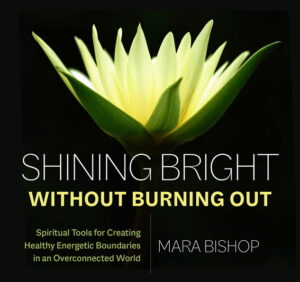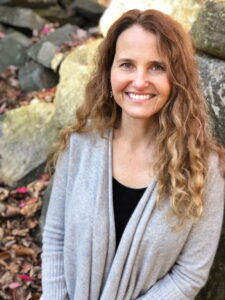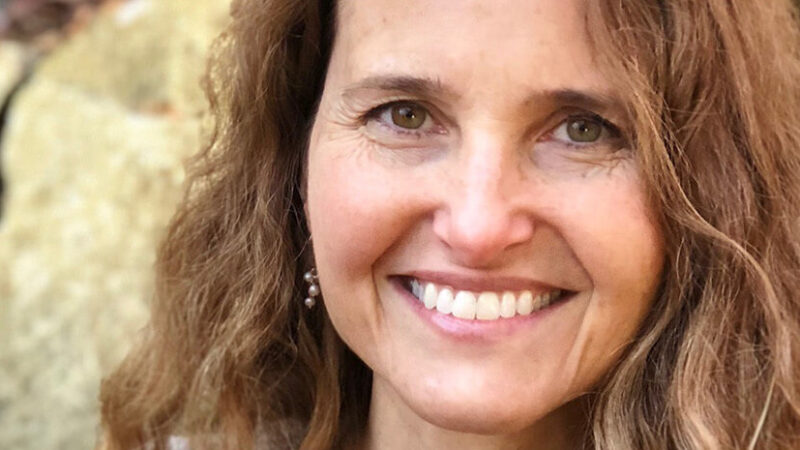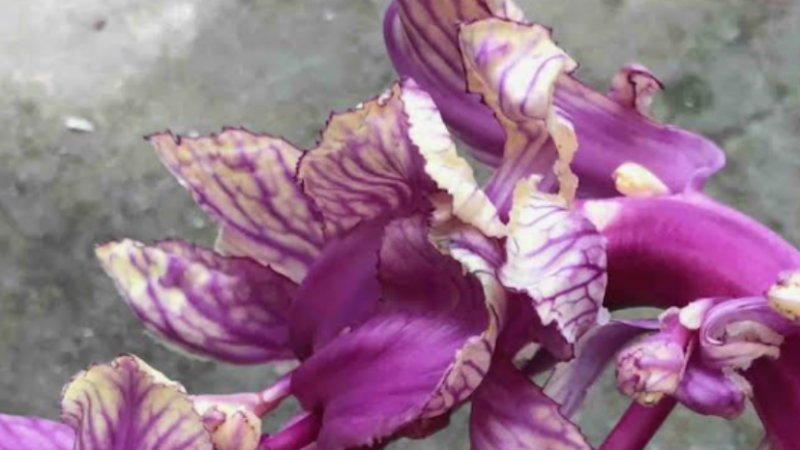Compassion is the magic ingredient that turns our personal “compost” into personal evolution.
Some time ago, I found a strange bloom in the kitchen. It was elegantly twisted, like a dragon at a Chinese New Year celebration. It was frilled, purple, and pungent. This exquisite thing grew out of a chunk of purple cabbage that I’d put under the sink to go out for compost. Instead of fading quietly however, it burst into new life in the dark grotto of my cabinetry. It blossomed into something unexpected, unusual, and fiercely beautiful.
Reflecting on the discovery of this “flower” in the shadows, I’m reminded of, and heartened by, the fertility of dark times. Many people are feeling a collective spiritual darkness now, exhausted and frustrated, maybe also angry and scared. Having compassion for ourselves and others is especially important in times of literal and metaphorical darkness. How can we do this if we already feel overloaded?
Nature is our ultimate model and guide—in the light, in the dark, and in the most surprising and gorgeous ways. Cue the weird, glorious cabbage flower which came to life in the dark. What was being shown there?
There is the clear compost metaphor. Compost is the stuff we reject, the moldy, wilted, too hard, too soft, nasty bits that don’t make it to the table. It’s also the leftovers from delicious things we appreciate and enjoy, silky mango skins, green tea leaves, dark coffee grounds.
It all transforms into a rich sloop that eventually nourishes future plants. Our personal work includes processing our own “dark” sides, the parts we’d like to hide or discard. Self-compassion (and compassion for others) holds both the rejected and respected parts of who we are. Like composting, it isn’t always pretty, but it’s potent. Research shows self-compassion helps us stay present and kindhearted without sinking into absorptive empathy, which can lead to overload and burnout. This meditation is part of the toolkit in the audio course Shining Bright Without Burning Out.
The cycles of the natural world, into which we are interwoven, take time. It’s hard to be patient, to let everything, both scorned and enjoyed, stew in our symbolic personal compost piles. The speed with which that brew changes from nasty to nourishing varies widely with the internal and external conditions. Sometimes all those different elements take a long time to dissolve and break down. Sometimes it turns around faster than we think possible, like time-lapse photography of a log rotting on the forest floor with new green shoots springing to life overnight. Compassion is the magic ingredient that turns our personal “compost” into personal evolution.
The dark supports transformation. Times of literal darkness are needed for regeneration. Roots, seeds, and bulbs prepare. People and animals sleep. Times of symbolic darkness are also helpful. In darkness, transformative processes happen without spectators, often below the level of our conscious awareness. These are periods of catharsis, healing after trauma, cocooning in preparation for the next version of ourselves and our world.
We sometimes feel hopeless and helpless in the dark. Our society avoids sinking into it. Instead, we gravitate towards purveyors of easy “love and light!” spirituality, shying away from the deep, gooey work that happens to the larval versions of ourselves (and those around us) when we’re in the darkness of the cocoon. Self-compassion is most needed when we’re a mess.
The dark is a vital part of the wheel of our days, our years, our lifetimes. We need it to survive and be healthy in the long term. So, let’s embrace it, explore it, and be gentle with ourselves as we confront our fear of it. From this darkness we are nourished to bloom into the light.
@ 2021 Mara Bishop MA
 Order Shining Bright Without Burning Out now!
Order Shining Bright Without Burning Out now!

Mara Bishop has
over 25 years of experience helping people find spiritual health and
well-being. Her Personal Evolution Counseling™ method blends shamanism,
psychology, intuition, energy healing, and nature-based practices. She
lives in Durham, NC with a beloved family of people, animals, and
plants.
More information about Mara is at www.WholeSpirit.com





 Order
Order 
